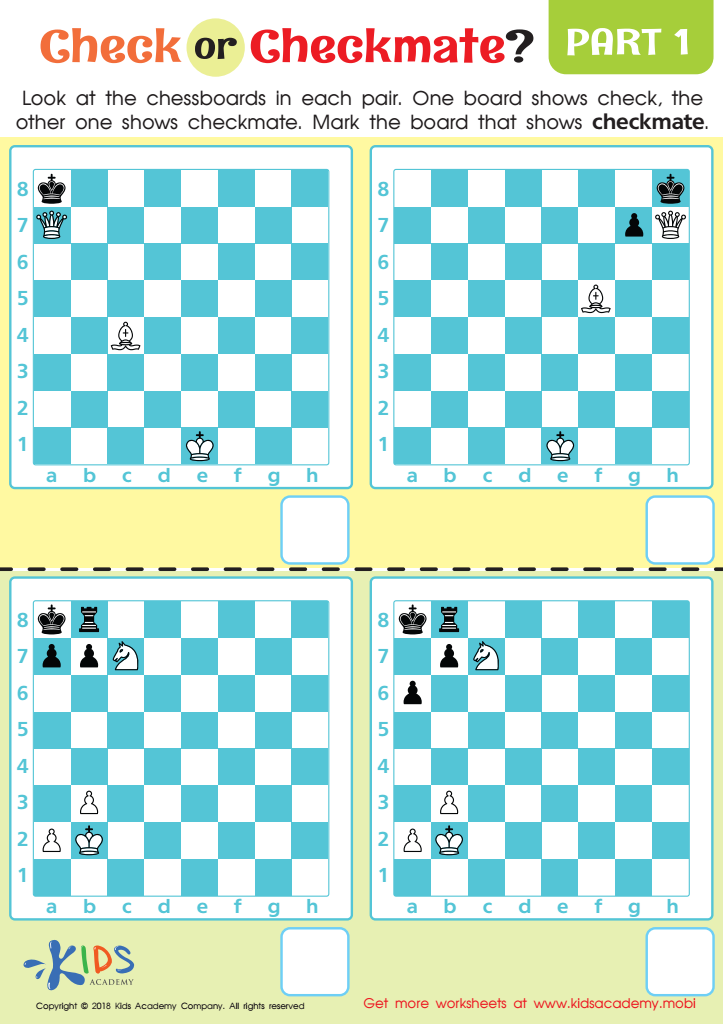Strategic game planning Worksheets for Kids
1 filtered results
-
From - To


Check or Checkmate: Part 1 Worksheet
Question/Answer
How to test a Grade 1 student’s Strategic game planning skills?
To test a Grade 1 student's strategic game planning skills, introduce simple, age-appropriate board games or digital games that require planning ahead, such as "Tic-Tac-Toe" or "Connect Four. " Observe their ability to think about future moves, adapt strategies based on the game's progress, and understand the consequences of their decisions.
Why is the Strategic game planning skill important for Grade 1 students?
Strategic game planning skill is essential for Grade 1 students because it fosters critical thinking, problem-solving abilities, and adaptability. Developing this skill early enhances children's capacity to anticipate outcomes, plan ahead, and make decisions, laying a foundation for academic success and effective daily life management. It also encourages teamwork, patience, and the understanding of cause-and-effect relationships.
What are some effective activities to train students’ Strategic game planning skill when teaching them about Chess?
To train students in strategic game planning in chess, focus on: analyzing famous chess games to understand strategic principles, practicing specific opening moves and their counters, conducting endgame scenarios to develop foresight, playing timed matches to enhance quick strategic thinking, and encouraging students to annotate their games for later review to identify and learn from their strategic choices and mistakes.

 Assign to My Students
Assign to My Students
















